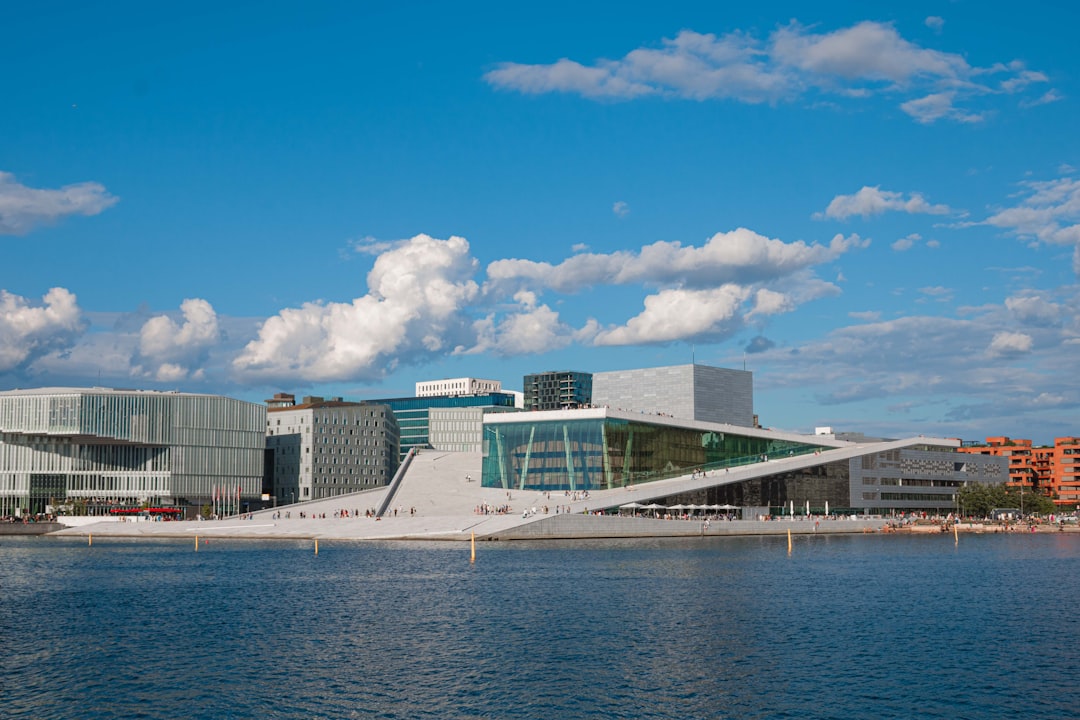Tipping in Norway is a nuanced subject that often perplexes visitors. Unlike many other countries where tipping is an ingrained part of the service culture, Norway adopts a more reserved approach. The general consensus is that tipping is not obligatory, and many Norwegians view it as a gesture of appreciation rather than a necessity.
This stems from the country’s high standard of living and the fact that service workers are typically paid a fair wage. Consequently, the expectation for tips is significantly lower than in places like the United States or parts of Europe where tipping is customary. However, this does not mean that tipping is entirely absent from Norwegian culture.
In certain situations, it is appreciated and can enhance the experience for both the giver and the receiver. Understanding when and how much to tip can be a delicate balance, as it varies across different sectors and services. As a visitor, being aware of these cultural nuances can help you navigate social interactions more smoothly and show respect for local customs. Take the first step. Book a consultation with the Norway Relocation Group for your move to Norway.
Summary
- Tipping is not a common practice in Norway, as service charges are usually included in the bill.
- In restaurants and cafés, it is not expected to tip, but rounding up the bill or leaving a small amount is appreciated.
- Tipping in bars and pubs is not customary, but leaving a small amount for exceptional service is acceptable.
- Tipping for taxi services is not expected, but rounding up the fare or leaving a small amount is a nice gesture.
- Tipping for hotel services is not necessary, but leaving a small amount for exceptional service is appreciated.
Tipping in Restaurants and Cafés
In restaurants and cafés, tipping practices in Norway are relatively straightforward. The prices on the menu usually include service charges, which means that there is no pressure to leave a tip. However, if you have received exceptional service or if you simply wish to express your gratitude, rounding up the bill or leaving a small amount—typically around 5 to 10 per cent—is considered a kind gesture.
For instance, if your meal costs 450 NOK, leaving 500 NOK and telling the server to keep the change would be well-received. It is also worth noting that many establishments have adopted a no-tipping policy, particularly in more upscale venues where service charges are included in the overall pricing. In such cases, leaving a tip may be seen as unnecessary.
Nevertheless, in smaller cafés or family-run restaurants, where personal service is more prevalent, patrons often choose to leave a little extra as a token of appreciation for the staff’s efforts.
Tipping in Bars and Pubs

When it comes to bars and pubs, the tipping culture mirrors that of restaurants but with its own unique characteristics. In most cases, patrons do not feel compelled to tip for drinks, especially if they are ordering at the bar. However, if you are seated at a table and receive table service, leaving a small tip can be a nice gesture.
A common practice is to round up your bill or leave a few coins as a sign of appreciation for attentive service. In more casual settings, such as local pubs or bars where you might be enjoying a drink with friends, tipping is less common. Many Norwegians simply pay their bill without adding anything extra.
However, if you find yourself in a lively atmosphere where the bartender has gone above and beyond—perhaps by crafting an exceptional cocktail or providing insightful recommendations—leaving a small tip can certainly enhance your rapport with the staff.
Tipping for Taxi Services
Tipping taxi drivers in Norway is not a widespread practice, but it is appreciated when it occurs. Most taxi fares are calculated based on a meter system, and drivers are compensated fairly for their services. However, if you have had a particularly pleasant ride—perhaps due to an engaging conversation or exceptional assistance with your luggage—rounding up your fare or adding a small tip can be a thoughtful gesture.
For example, if your taxi fare comes to 210 NOK, you might choose to give the driver 250 NOK and ask them to keep the change. This small act of kindness can go a long way in showing appreciation for their service. Nevertheless, it is essential to remember that tipping is not expected, and many locals will simply pay the fare without any additional gratuity.
Tipping for Hotel Services
In hotels, tipping practices can vary depending on the level of service provided. For bellhops who assist with your luggage or concierge staff who go out of their way to help you with reservations or recommendations, leaving a small tip is often appreciated. A common practice is to offer around 20 to 50 NOK for bellhops per bag or for concierge services that exceed expectations.
Housekeeping staff may also appreciate tips, although this is less common in Norway than in other countries. If you feel that your room has been exceptionally well cared for during your stay, leaving a small amount—perhaps 20 NOK per day—can be a nice way to express your gratitude. Ultimately, while tipping in hotels is not mandatory, it can enhance your experience and foster goodwill between you and the staff.
Tipping for Tour Guides and Excursions

When participating in guided tours or excursions, tipping practices can vary widely based on the type of experience and the level of service provided. For group tours, it is generally acceptable to leave a tip if you feel that your guide has gone above and beyond in providing an informative and enjoyable experience. A common guideline is to tip around 10 per cent of the tour cost or approximately 50 to 100 NOK per person.
For private tours or bespoke experiences where the guide has tailored the itinerary to your preferences, tipping can be more generous. In these cases, expressing your appreciation with a larger tip—perhaps 100 to 200 NOK—can reflect your satisfaction with their efforts. Ultimately, while tipping is not obligatory in these situations, it serves as an acknowledgment of exceptional service and can contribute positively to the overall experience.
Tipping for Spa and Wellness Services
In spa and wellness settings, tipping practices are generally similar to those in other service industries. While it is not customary to tip for treatments such as massages or facials in Norway, many clients choose to leave a small gratuity if they feel particularly satisfied with their experience. A tip of around 10 per cent of the treatment cost can be seen as a thoughtful gesture.
If you have received multiple treatments or have spent an extended period at the spa enjoying various services, consider leaving a larger tip as a token of appreciation for the staff’s dedication to your relaxation and well-being. Ultimately, while tipping is not expected in these environments, it can enhance your experience and show gratitude for exceptional service.
Tipping for Hairdressers and Beauty Services
When visiting hairdressers or beauty salons in Norway, tipping practices are generally relaxed. Most clients do not feel obligated to leave a tip after their appointment; however, if you are particularly pleased with your haircut or beauty treatment, leaving a small gratuity can be appreciated by the stylist or beautician. A common practice is to round up the bill or leave around 5 to 10 per cent as a sign of gratitude.
In more upscale salons where clients receive personalised attention and exceptional service, tipping may be more common. If you have had an outstanding experience—perhaps due to an intricate hairstyle or attentive service—consider leaving a larger tip as an expression of your satisfaction. Ultimately, while tipping is not mandatory in these settings, it can foster goodwill between clients and service providers.
Tipping for Delivery Services
In Norway, tipping delivery drivers is not customary but can be appreciated when it occurs. Most delivery services include delivery fees within their pricing structure; therefore, customers are not expected to provide additional gratuity. However, if you receive prompt service or if the delivery driver goes out of their way to ensure your order arrives safely—especially during inclement weather—a small tip can be seen as a kind gesture.
A common practice might involve rounding up your bill or offering an extra 20 to 50 NOK as a token of appreciation for their efforts. While it is not obligatory to tip delivery drivers in Norway, doing so can enhance their day and show gratitude for their hard work.
Tipping for Other Services
In addition to the aforementioned services, there are various other situations where tipping may come into play in Norway. For example, if you receive assistance from tradespeople such as plumbers or electricians who provide exceptional service during home repairs or installations, offering a small tip can be appreciated but is not expected. Similarly, if you engage with local artisans or craftsmen who provide personalised services at markets or fairs, leaving a small gratuity can reflect your appreciation for their work.
Ultimately, while tipping practices may vary across different sectors and services in Norway, it remains essential to gauge each situation individually. Understanding local customs will help you navigate these interactions with ease and respect.
Tipping for Exceptional Service
Exceptional service deserves recognition regardless of the context in which it occurs. In Norway, while tipping may not be obligatory across all sectors, acknowledging outstanding service through gratuity can foster positive relationships between customers and service providers. Whether it’s an extraordinary meal at a restaurant, an engaging tour guide who brings history to life, or an attentive hotel staff member who goes above and beyond to ensure your comfort—tipping serves as an expression of gratitude.
When considering how much to tip for exceptional service, think about what feels appropriate based on your overall experience and satisfaction level. A thoughtful approach could involve leaving around 10 per cent of the total bill or offering an amount that reflects your appreciation for their efforts. Ultimately, while tipping may not be deeply ingrained in Norwegian culture, recognising exceptional service through gratuity can enhance both your experience and that of those who serve you.
As you navigate these various aspects of tipping culture in Norway, remember that understanding local customs will enrich your interactions during your visit. If you’re looking to immerse yourself further into Norwegian culture—perhaps even learning the language—consider enrolling in one of the Norwegian courses offered at NLS Norwegian Language School in Oslo. Their comprehensive programmes cater to all levels and provide an excellent opportunity to deepen your understanding of both language and culture while enhancing your overall experience in this beautiful country.
Learn more about the Norwegian classes at the NLS Norwegian Language School in Oslo

